Beets: Important Facts, Health Benefits, and Recipes
Explore the health benefits, history, and culinary uses of beets in our ultimate guide, and learn how to incorporate this vibrant powerhouse into your diet.

Best Beets Recipes
-
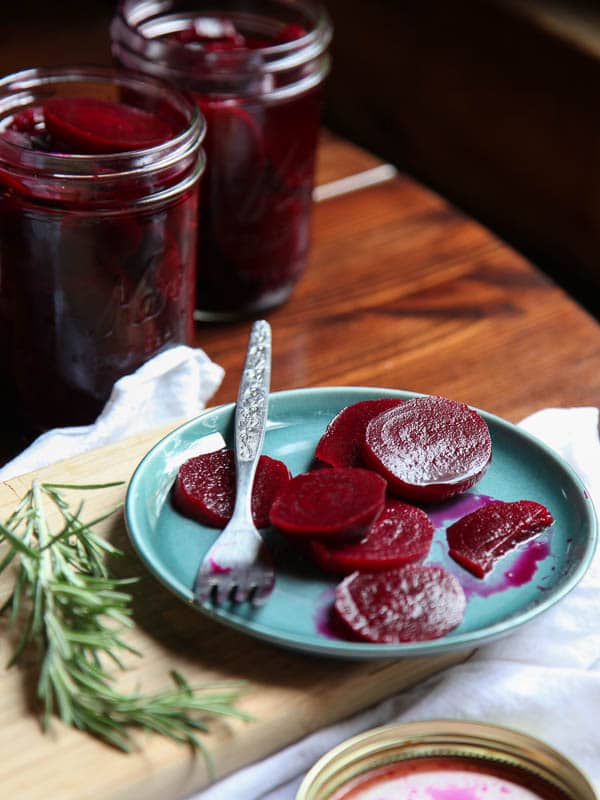
-
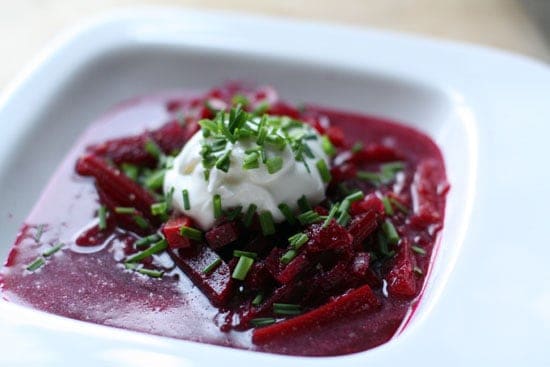
-

-

-

-

-

-

-
![How to Make THE BEST Roasted Beets Image]()
-
![Roasted Beet Salad with Ricotta Image]()
-
![Beet Soup Recipe Image]()
-
![Instant Pot Beets Image]()
-
![Instant Pot Borscht {Authentic} Image]()
-
![Moroccan Beetroot Salad With Yogurt Dressing Recipe Image]()
-
![Polish Christmas Eve Beet Soup Image]()
-
![Classic Harvard Beets Recipe Image]()
-
![Beets with Goat Cheese and Pine Nuts Image]()
-
![Beet Hummus Recipe Image]()
-
![Perfect Roasted Beets Image]()
-
![Roasted Beet Salad with Goat Cheese & Pistachios Image]()
-
![Salmon, Beet, and Arugula Salad with Pistachios and Pomegranates Image]()
-
![Vicki & Misha Collins' Beet Gnocchi Image]()
-
![Roasted Beets with Balsamic Glaze Recipe Image]()
-
![Borscht Recipe Image]()
-
![Ukrainian Beetroot Soup (Borshch) Recipe Image]()
-
![Beet Salad With Spinach and Balsamic Vinaigrette Recipe Image]()
-
![Beet and Cabbage Borscht Soup Recipe Image]()
-
![Russian Beet and Potato Salad Recipe Image]()
-
![Polish Cwikla (Grated Horseradish With Beets) Recipe Image]()
-
![Baby Beet Tarte Tatin from 'River Cottage Veg' Image]()
-
![Beet-Colored Fresh Pasta Recipe Image]()
-
![French in a Flash: Beet Salad with Goat Cheese Recipe Image]()
-
![Beet Salad with Black Garlic Vinaigrette Recipe Image]()
-
![Creamy Beet Gratin With Pistachio Crumble Recipe Image]()
-
![Beet Latkes With Walnuts and Horseradish Sour Cream Recipe Image]()
-
![Beet and Citrus Salad With Pine Nut Vinaigrette Recipe Image]()
-
![Dinner Tonight: Vegetarian Borscht Recipe Image]()
-
![DIY Black Tahini and Beet Hummus Recipe Image]()
-
![Grilled Flank Steak with Pistachio-Mint Pesto and Roasted Beets Recipe Image]()
-
![The Hot Pink Recipe Image]()
-
![Red Velvet Cake Recipe Image]()
-
![Roasted Beets With Balsamic Glaze Recipe Image]()
-
![Scooped: Roasted Beet and Dark Chocolate Ice Cream Recipe Image]()
-
![Roasted Beets With Citrus, Feta and Walnuts Recipe Image]()
-
![Roasted Root Vegetables With Sweet Lime Dressing Recipe Image]()
-
![Roasted-Beet Salad With Horseradish Crème Fraîche and Pistachios Recipe Image]()
-
![Roasted Beet Soup with Thyme, Lemon, and Crème Fraîche Recipe Image]()
-
![Roasted-Beet and Citrus Salad With Ricotta and Pistachio Vinaigrette Recipe Image]()


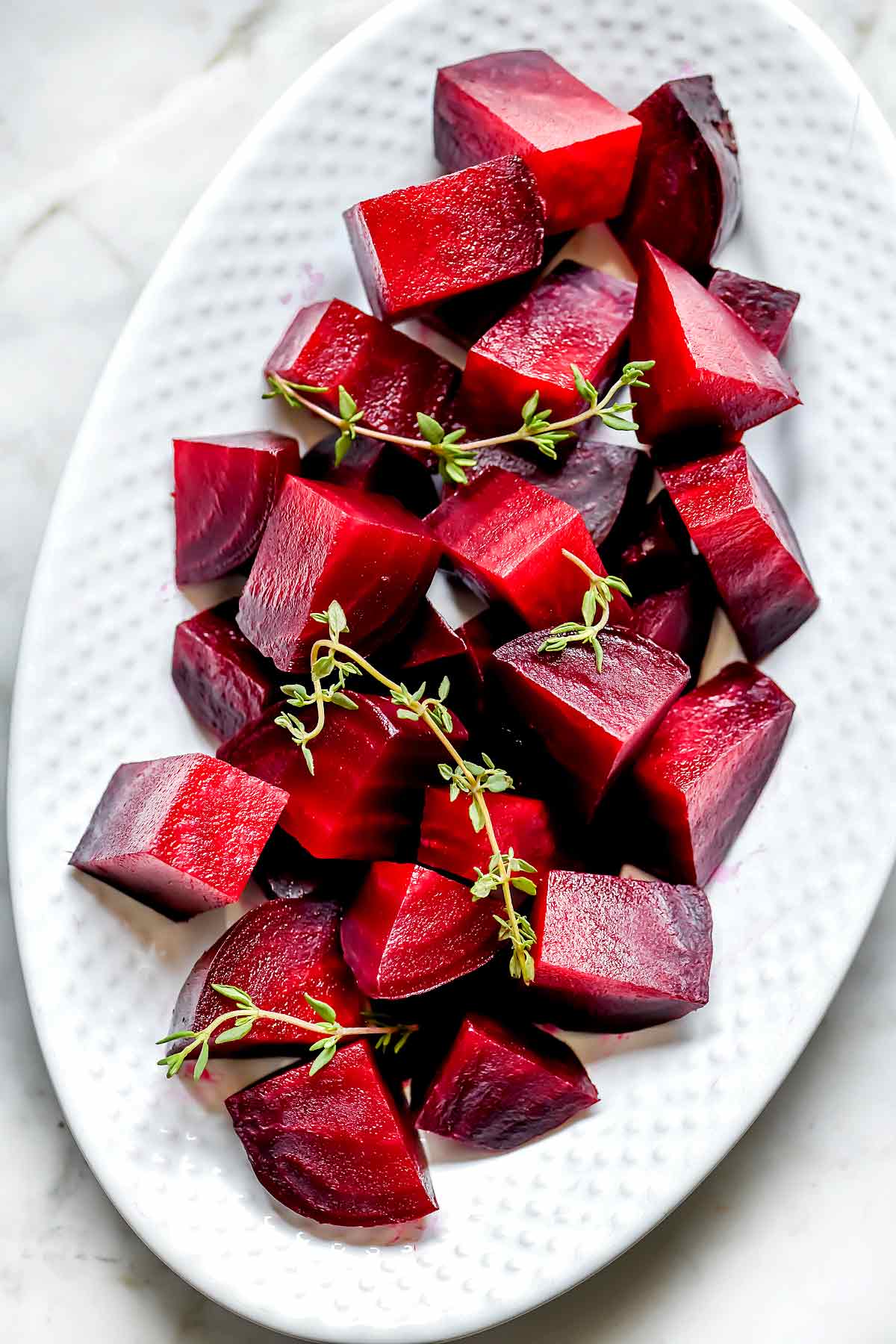

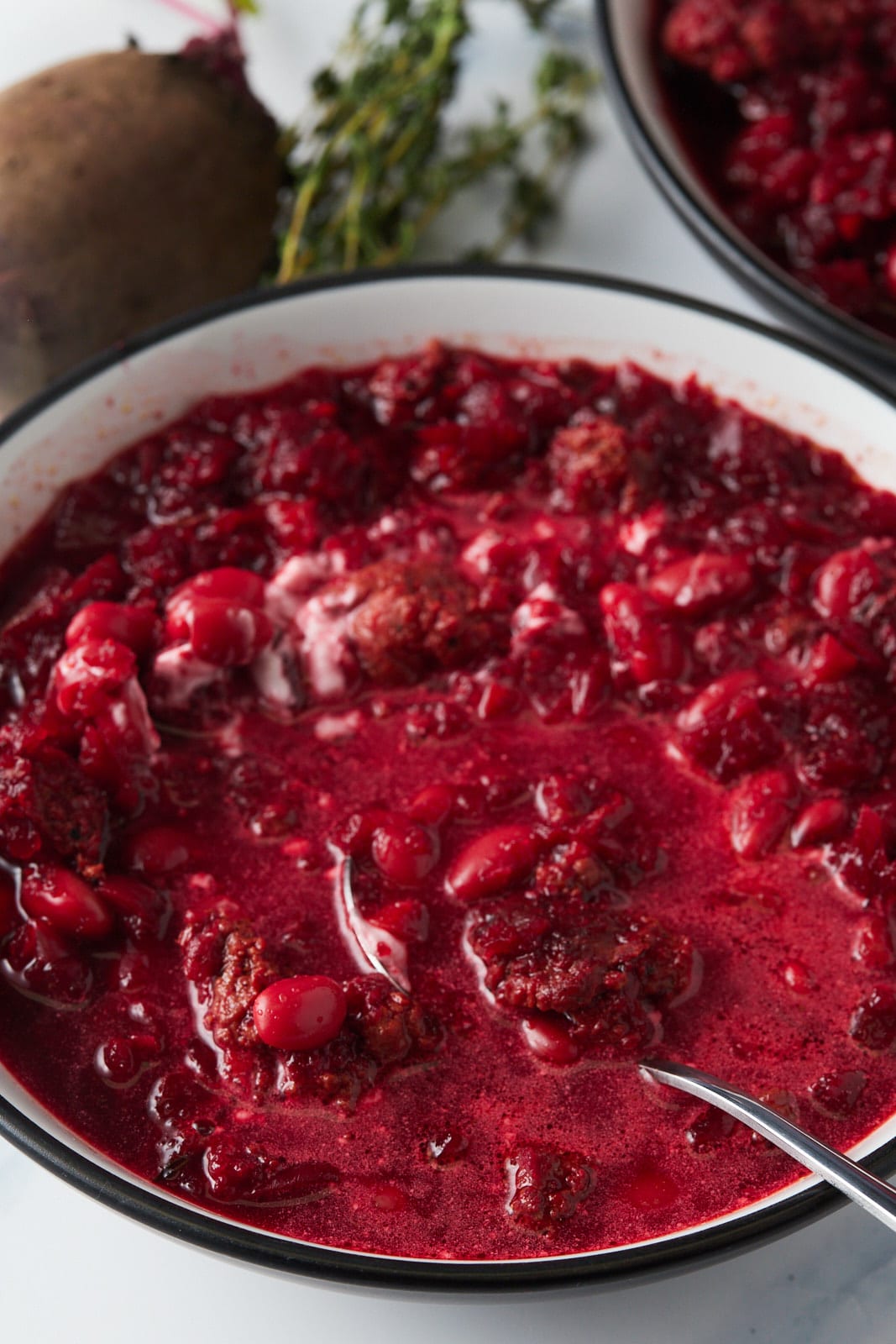
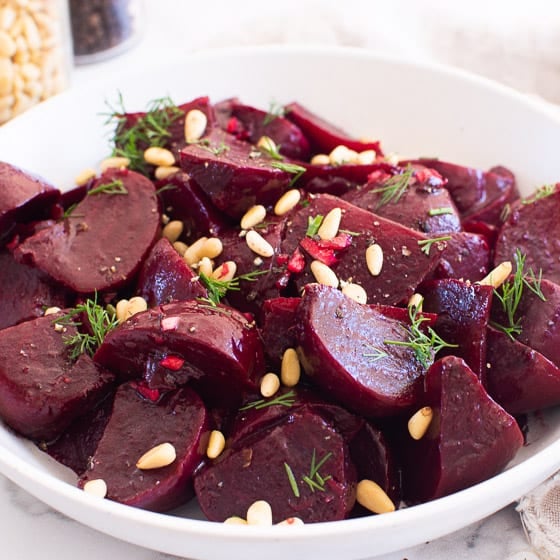

:max_bytes(150000):strip_icc()/moroccan-beetroot-salad-recipe-435270-hero-01-bb34121624544bdfa500952cbe244229.jpg)
:max_bytes(150000):strip_icc()/polish-christmas-eve-beet-soup-recipe-1137124-hero-01-b8dd5895f35949a8a227770159a03f9b.jpg)
:max_bytes(150000):strip_icc()/classic-harvard-beets-3051459-hero-01-9dc3ed6047184d9082acc3c6142e3df4.jpg)
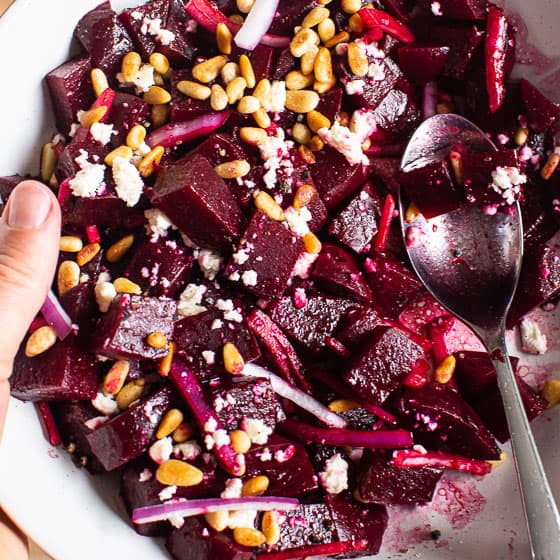
:max_bytes(150000):strip_icc()/__opt__aboutcom__coeus__resources__content_migration__simply_recipes__uploads__2010__02__beet-hummus-horiz-a-1200-2aa2e2f8f771493d9dff2ab397895c2f.jpg)



:max_bytes(150000):strip_icc()/__opt__aboutcom__coeus__resources__content_migration__simply_recipes__uploads__2019__11__Adventurous-Eaters-Club-3-f098548552644c75b934dfae4a3af417.jpg)
:max_bytes(150000):strip_icc()/__opt__aboutcom__coeus__resources__content_migration__simply_recipes__uploads__2011__02__Roasted-Beets-Balsamic-LEAD-3-109860829a7e469a8f35bfe30954bde3.jpg)
:max_bytes(150000):strip_icc()/__opt__aboutcom__coeus__resources__content_migration__simply_recipes__uploads__2007__12__borscht-horiz-c-1800-ec20c28c577248739a38ddd6658c2c94.jpg)
:max_bytes(150000):strip_icc()/98180878-58a4b1653df78c4758d10892.jpg)
:max_bytes(150000):strip_icc()/beet-salad-with-spinach-and-honey-balsamic-vinaigrette-3051457_11-5b0d77a33418c600388c4709.jpg)
:max_bytes(150000):strip_icc()/beet-and-cabbage-borscht-2217722-Hero_01-3e556bb389fa40c199f80815081912bb.jpg)
:max_bytes(150000):strip_icc()/GettyImages-124759438-58420f2d3df78c02300dbe69.jpg)
:max_bytes(150000):strip_icc()/ChrainHalvedBeet-5ad4effba474be00368a52e2.jpg)
:max_bytes(150000):strip_icc()/__opt__aboutcom__coeus__resources__content_migration__serious_eats__seriouseats.com__recipes__images__2013__05__053113-253570-cook-the-book-baby-beet-tarte-tatin-b4b60ae502d441ecbff09a17a9e3e3c3.jpg)
:max_bytes(150000):strip_icc()/__opt__aboutcom__coeus__resources__content_migration__serious_eats__seriouseats.com__recipes__images__2015__07__20150415-colored-pasta-vicky-wasik-22-ff3ace404b1f4c358dd4f55e6414211d.jpg)
/__opt__aboutcom__coeus__resources__content_migration__serious_eats__seriouseats.com__recipes__images__20110628BeetSalad-74ebd2c7db4341a4805683a318745aae.jpg)
:max_bytes(150000):strip_icc()/__opt__aboutcom__coeus__resources__content_migration__serious_eats__seriouseats.com__recipes__images__20100915beets-46f4f1d093bc4292bc57c95ce650e7ba.jpg)
:max_bytes(150000):strip_icc()/__opt__aboutcom__coeus__resources__content_migration__serious_eats__seriouseats.com__recipes__images__2017__10__20170919-beet-gratin-vicky-wasik-23-bbcffd3bbdac4180a9011e54988eaa15.jpg)
:max_bytes(150000):strip_icc()/__opt__aboutcom__coeus__resources__content_migration__serious_eats__seriouseats.com__recipes__images__2014__12__20141210-latke-variations-beets-vicky-wasik-5-489790b6a4784646a6ddd34a735d75ad.jpg)
:max_bytes(150000):strip_icc()/__opt__aboutcom__coeus__resources__content_migration__serious_eats__seriouseats.com__recipes__images__2015__12__20120202-beet-grapefruit-orange-pinenut-salad-kenji-7e45a019e85d4c1c930f0f2ced791767.jpg)
:max_bytes(150000):strip_icc()/__opt__aboutcom__coeus__resources__content_migration__serious_eats__seriouseats.com__recipes__images__20090212vegetarianborscht-77b1b171b9e747049d3550d6418a0764.jpg)
:max_bytes(150000):strip_icc()/__opt__aboutcom__coeus__resources__content_migration__serious_eats__seriouseats.com__recipes__images__2013__01__20130207-239029-beethummus-featured-28242c88176c4c9286eea96ba89df6d4.jpg)
:max_bytes(150000):strip_icc()/__opt__aboutcom__coeus__resources__content_migration__serious_eats__seriouseats.com__recipes__images__2013__08__082113-263915-Serious-Eats-Sunday-Supper-Flank-Pistachio-Mint-PestoB-26b3941dd8454582ae9d8882cc46813c.jpg)
:max_bytes(150000):strip_icc()/__opt__aboutcom__coeus__resources__content_migration__serious_eats__seriouseats.com__recipes__images__2013__10__20131026-271247-beet-celery-shrub-RIGHT-41b233afef5146319763b643efff7770.jpg)
:max_bytes(150000):strip_icc()/__opt__aboutcom__coeus__resources__content_migration__serious_eats__seriouseats.com__recipes__images__2012__01__20120131-127677-LTE-Red-Velvet-Cake-PRIMARY-dec605261d2f4e2297d5cdc3ed7ff849.jpg)
:max_bytes(150000):strip_icc()/__opt__aboutcom__coeus__resources__content_migration__serious_eats__seriouseats.com__recipes__images__2013__02__2013-02-27-roasted-beets-balsamic-glaze-b55f31c4c17d4ba0a69b173f2e52cd2e.jpg)
:max_bytes(150000):strip_icc()/__opt__aboutcom__coeus__resources__content_migration__serious_eats__seriouseats.com__recipes__images__20110218-138134-roasted-beet-chocolate-ice-cream-3eb83c58192246768aef46dfff2294c1.jpg)
:max_bytes(150000):strip_icc()/__opt__aboutcom__coeus__resources__content_migration__serious_eats__seriouseats.com__recipes__images__2013__01__2013-01-16-roasted-beets-citrus-feta-walnuts-be435ca22de24f5694b8d43b6d2efc22.jpg)
:max_bytes(150000):strip_icc()/__opt__aboutcom__coeus__resources__content_migration__serious_eats__seriouseats.com__2021__03__20210301-roasted-beet-salad-nik-sharma-5-77d8b686449b47d5b5be307bc8e98c45.jpg)
:max_bytes(150000):strip_icc()/__opt__aboutcom__coeus__resources__content_migration__serious_eats__seriouseats.com__images__2013__12__20131208-roasted-vegetable-food-lab-38-639aaec581984260bb2a96d6e6abad54.jpg)
:max_bytes(150000):strip_icc()/__opt__aboutcom__coeus__resources__content_migration__serious_eats__seriouseats.com__recipes__images__2012__10__20121015RoastedBeetSoup-edit-96019bcd66d4450f8725f99fe229ca57.jpg)
:max_bytes(150000):strip_icc()/__opt__aboutcom__coeus__resources__content_migration__serious_eats__seriouseats.com__images__2017__02__20170131-beet-pistachio-ricotta-citrus-salad-09-224bfaa1465a4eacba2008c8510cf205.jpg)